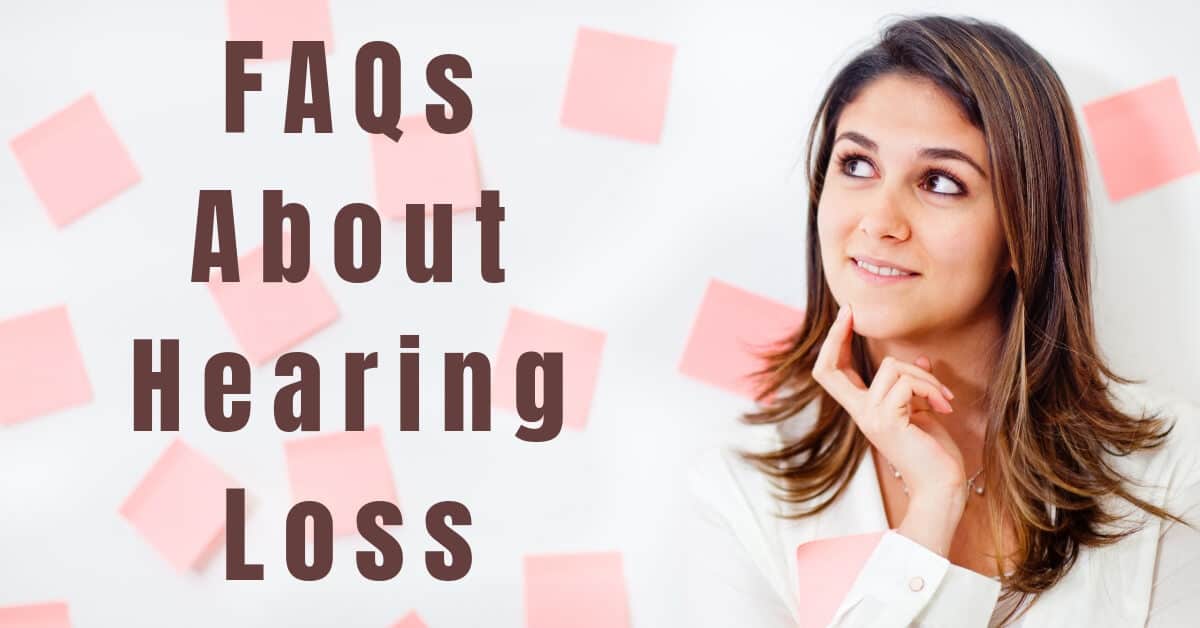- What Is Single-Sided Hearing Loss? - July 11, 2024
- Whistling Hearing Aids – Causes and Solutions - June 8, 2024
- Tips For Itchy Ears - May 6, 2024
If you have recently been diagnosed with hearing loss, you may have a few questions. You are not alone! Many others may have inquired about the same issues, so the following provide answers to some of the most commonly asked questions about hearing loss.
Do hearing aids improve my hearing?
The obvious answer to this question might be “yes,” but there are some things to keep in mind. If you have a hearing loss, hearing aids do improve your experience of hearing by amplifying sounds to a level that the ears can receive, translate, and understand. Aids are devised precisely to help you hear in contexts and ranges of sound that you were formerly unable to do. However, it is important to keep in mind that hearing loss is a permanent condition. If you have a sensorineural hearing loss, the most common kind, the tiny hairs of the inner ear have been damaged and will not regenerate. Although there is no known cure for hearing loss of this kind, hearing aids step in to make you able to hear clearly while they are in place.
Are there homeopathic remedies for hearing loss?
Homeopathic, natural, and traditional medical practices have improved our lives in countless ways, offering a close connection between many of the ailments we face and the healing power of nature and our own communities. Although these forms of alternative medicine are powerful ways to treat many medical conditions, no known homeopathic remedy has been discovered for hearing loss. When the inner ear has suffered damage, mainstream medical and alternative healing practices are powerless to regenerate those lost pieces of the healing puzzle.
Will my hearing loss progress to the point that I am eventually deaf?
Although sensorineural hearing loss is degenerative, meaning it tends to get worse, it usually does not go to the point of total deafness. Aside from the additional problems of injury, exposure to ototoxic chemicals, or a powerfully damaging hearing incident, your hearing will likely “plateau” at a level of moderate damage. However, it is important to note that even though your hearing is unlikely to degenerate to the point of total deafness, your mind is also intimately connected to your ability to hear. If you have plateaued at a low level of hearing ability, your auditory system can also atrophy, much like a muscle that is unused. Your mind may become increasingly unable to decipher sounds when it is dealing with hearing trouble on a regular basis, without the intervention of hearing aids.
Can I just get one hearing aid in my bad ear?
The most common answer to this question is “no,” but of course there are exceptions. Although you may feel that you only have hearing loss in one ear, the two sides of the head work in concert for many types of hearing. Particularly, spatial positioning and sensing the location of moving sounds requires both ears to be fully operational at the same time. If you only treat the more seriously damaged ear, it will most likely result in similar localization issues when the untreated ear struggles to hear. We also know that the two ears have different functions. The right ear tends to be best for listening to speech. The left side tends to be best at listening to “non-speech” sound, including music. Though only one of your ears may seem to have serious damage, it is common to use two hearing aids to balance your ability and to capture all of these sounds.
Are there things I can do to prevent future hearing loss?
This answer is an emphatic “yes!” Among the many steps you can take to prevent future hearing loss, wearing hearing protection in loud industrial sites is one of the most important. Limiting time with headphones or other loud audio devices can give your ears a break. Monitoring the volume level of leisure sound, including headphones, concerts, and television, can help you limit unnecessary exposure. Smartphone apps are newly available to help you keep track of volume levels and exposure to loud sound, often in ways you didn’t even notice. If you think you are being exposed to loud, damaging sounds, don’t hesitate to devise a plan for protection!
Visit Us at Blue Wave Hearing Centers
At Blue Wave Hearing Centers, we provide comprehensive hearing health services, from hearing test to hearing aid fittings to custom hearing protection. Contact us today to learn more and to schedule an appointment.


